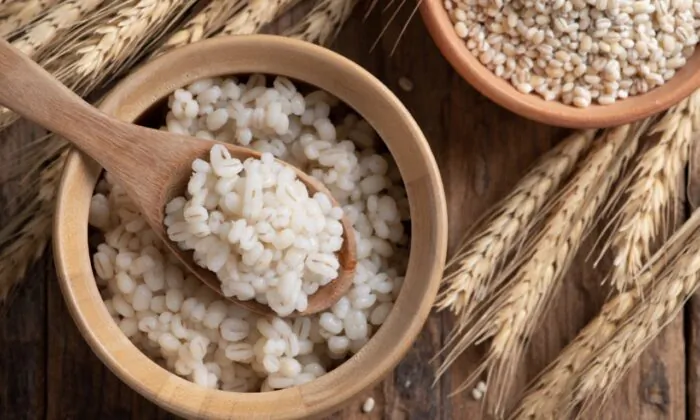If you have been hearing a lot about beta glucans lately, it’s for a good reason. A growing body of research shows how beneficial they are to our health—especially for people with cancer.
What are Beta Glucans?
Beta glucans are a type of soluble fiber found in the cell walls of cereal grains such as oats and barley, different types of fungi such as shiitake and maitake mushrooms, as well as some yeasts, bacteria, seaweed, and algae. Their biological effects depend on their source, size, and structure, but they have been shown to be helpful in a number of conditions and support healthy blood glucose levels, aid in weight loss, improve the cardiovascular system, and benefit people with cancer.
As they are present in many foods, most people are likely getting some beta glucans from their diet, but they are also available in supplement form as pills, powders, and liquid for those who want more than their diet can provide.
Powerful Antioxidants
Studies demonstrate that beta glucans are powerful antioxidants and free radical scavengers that can help to repair DNA damage.
One rat study published in The International Medical Journal in 2022 demonstrates beta glucans’ antioxidant effects. A common chemotherapy drug known as cyclophosphamide has many known side effects, including cardiotoxicity. In the study, the rats were divided into four groups. One group received no treatment and served as the control, the second received the chemo drug cyclophosphamide (200 milligrams (mg) per kilogram), the third received beta glucan, and the fourth received cyclophosphamide and beta glucan.
The authors found that the group that received cyclophosphamide had “considerably more severe cardiac damage than the control group,” but that the beta glucan had a protective effect when combined with the chemo drug. The authors concluded that beta glucan “could act as an effective cardioprotective molecule against the toxic effects caused by CP [cyclophosphamide].”
Another study published in Current Molecular Pharmacology set out to evaluate the “antioxidant effect of beta-glucan on oxidative DNA damage” in patients with stage 3–4 colorectal cancer. Study participants were split into two groups—those with colorectal cancer and a group of age-matched healthy controls. Blood samples were collected to determine the extent of the DNA damage. After treating the blood with beta glucan incubation, DNA damage was significantly reduced, but the effect was more pronounced in the cancer patient’s blood than that of the controls. The authors concluded that beta glucan “was found to reduce DNA damage substantially in colorectal cancer patients and show antimutagenic effects,” and that intake of beta glucan could be important in the “genesis of colorectal cancer tumors.”
Immune Modulator
Part of beta glucan’s power is its ability to modulate the immune system—which means it can change the way the immune system functions. This is something it does in a variety of ways and depends on the source of the beta glucans and their structure. For example, research shows that beta glucans from yeast, which have been extensively studied, increase the body’s ability to make innate immune cells called cytokines (vital for an effective immune response), increase the speed and precision innate immune cells need to get to a pathogen, and increase the effectiveness of phagocytosis–cells that ingest and eliminate foreign invaders. They have even been shown to reverse lab-induced immune suppression.
AJ Lanigan has over two decades of expertise in immunology, pharmacology, and natural medicine. He is well known and respected for his work in advancing beta glucan science and education. He candidly describes the effect of beta glucans on the immune system, telling The Epoch Times, “What it [beta glucan] does is it causes the immune cells to do what they’re supposed to do—better and faster.”
He breaks it down, explaining, “Let’s look at four simple things that your immune system is charged with doing. Number one, surveil. Number two, identify. Number three, attack. And number four, eliminate the things that don’t belong there—including cancer cells.”
This immune enhancing ability is also recognized in health care, and according to a study published in the Journal of Advanced Pharmaceutical Technology & Research in 2011, beta glucans are sometimes given by health care providers in the following scenarios:
- Injected under the skin (subcutaneously) in cancer patients to reduce the size of skin tumors that are a result of cancer that has spread.
- For treating cancer and boosting the immune system of people with HIV/AIDS and other related conditions either intravenously or by injecting it into the muscle.
- Given intravenously after surgery to prevent infection.
Beta Glucans and Cancer
Beta glucans have been of particular interest as an adjuvant therapy in cancer treatment for their immunomodulatory effect, ability to specifically target cancer cells, and anti-tumor properties. A 2020 study published in the Journal of Fungi notes that “beta glucans do not have a direct cytotoxic effect on cancerous cells or tumours, but instead, elicit an indirect effect through the activation of immune cells.” In vitro studies also show that beta glucans trigger immune cells, including natural killer cells, macrophages, monocytes, neutrophils, and dendritic cells.
Mr. Lanigan concurs, saying that beta glucans don’t affect cancer directly, but help the immune system do its job more efficiently, “It [beta glucan] allows your immune system to do the best it possibly can do to surveil, identify, attack, and eliminate cancer cells.”
In one meta-analysis published in Phytomedicine in 2024, injectible lentinan—a beta glucan that comes from the mushroom Lentinus edodes—was evaluated for its safety and effectiveness when used in conjunction with chemotherapy in patients with gastric cancer. Lentinan is a beta-glucan that has been used in patients with gastric cancer and HIV patients and to improve immune function in patients after cardiopulmonary bypass. A total of 2,729 patients were included in the analysis. The researchers found that treatment with lentinan was superior to chemotherapy alone and improved various factors, including the effectiveness of treatment, quality of life assessment, and reduced gastrointestinal reactions. The study authors also noted that they did not observe any serious adverse effects.
In another multicenter study published in the journal Hepatogastroenterology in 2009, beta glucans were beneficial in extending the survival rates in patients with liver cancer (unresectable or recurrent hepatocellular carcinoma). Thirty-six patients participated in the study and were given the beta-glucan lentinan in a supplementary food for a short time (between seven to 12 weeks) or an extended period (47 weeks).
Researchers tested their survival rates, following up for three years, and found that the patient’s survival rates improved significantly and increased the longer they consumed it. The authors concluded that “lentinan-containing supplementary food is effective for hepatocellular carcinoma patients’ survival” and that “long-time ingestion is preferable,” based on their findings.
In another study published in the Journal of Alternative and Complementary Medicine, beta glucans taken from shiitake mushrooms inhibited human colon carcinoma in mice when given orally, demonstrating its anti-tumor effects. The authors said that the anti-tumor properties of the beta glucans were preserved with oral administration and that it stimulated lymphocytes, inevitably slowing the development of tumors in the mice.
In a double-blind, placebo-controlled clinical trial in The International Journal of Clinical and Experimental Medical Sciences published in 2016, short-term supplementation with beta glucan increased the number of natural killer cells in patients recovering from various cancer treatments. Natural killer cells are a type of lymphocyte (or white blood cell) that have the ability to kill tumor cells. According to the study, these natural killer cells are “one of the most important defense mechanisms against cancer.”
Sources, Dosage, and Contraindications
Oats and barley are some of the highest food sources of beta glucans, but they are also present in wheat, rye, sorghum, and rice; yeasts, like baker’s yeast; mushrooms like reishi, shiitake, and maitake; and seaweeds and algae. Because of their prevalence, many of us are getting at least some beta glucans in our diet, but if you want to increase your levels, you can always take them in supplement form.
The dosage of beta-glucans depends on various factors, such as age, weight, general health status, and medications, if any. Between 100–500 mg daily is generally recommended to enhance immune function, but some sources suggest that higher doses may be necessary to receive beneficial effects. If you have cancer and are interested in including beta glucan supplements in your treatment regimen, be sure to speak with your oncologist before you begin to ensure you are doing it safely and can be monitored.
Beta glucans are generally considered safe and well-tolerated—however, reactions are possible as with any supplement. The most common are gastrointestinal issues, such as stomach upset, bloating, and diarrhea. To be safe, you can begin with a smaller dose, work your way up, and track your reactions. If you are taking any medications, consult your prescribing physician before taking beta-glucans to ensure there are no interactions with your prescribed medications.



